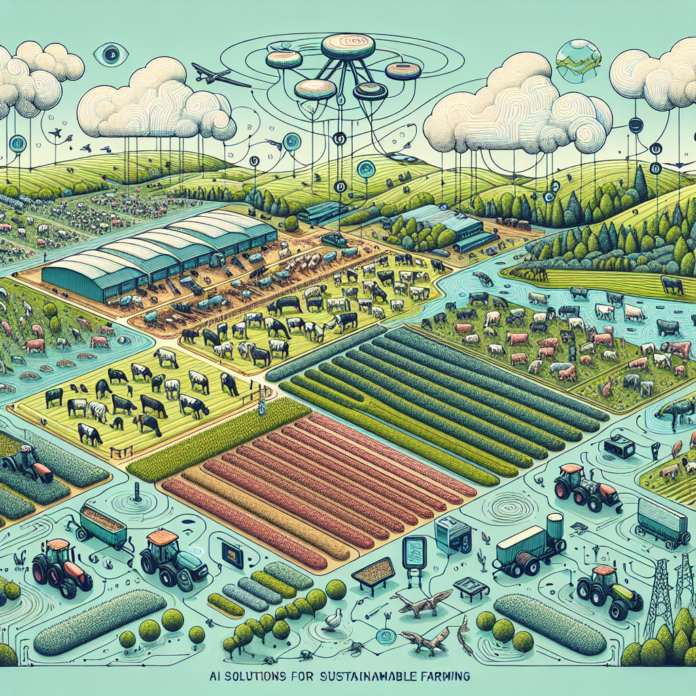AI Innovations Target Greenhouse Gas Emissions in Agriculture
Innovative AI Solutions to Mitigate Greenhouse Gas Emissions in Livestock Farming and Land Use
Researchers at Loughborough University have made significant strides in the development of artificial intelligence (AI) tools aimed at reducing greenhouse gas emissions linked to livestock farming and land utilization. This initiative comes in response to the urgent need for sustainable agricultural practices that can help combat climate change and its associated impacts.
The agricultural sector, particularly livestock farming, is a major contributor to greenhouse gas emissions, including methane and nitrous oxide, which are significantly more potent than carbon dioxide. By employing advanced AI technologies, scientists are exploring various strategies to optimize farming practices, improve resource efficiency, and enhance environmental sustainability.
AI-Driven Strategies for Emission Reductions
The AI tools being developed focus on several key areas:
- Precision Livestock Farming: Utilizing sensors and data analytics, these tools can monitor animal health and behavior in real-time, enabling farmers to make informed decisions that can lead to reduced feed waste and lower emissions.
- Optimized Feed Formulation: AI algorithms can analyze nutritional data to optimize feed formulations, which can help minimize methane production during digestion while ensuring the livestock receive balanced diets.
- Land Management Practices: AI can assist in analyzing soil health and crop yields, allowing farmers to implement sustainable land management practices that enhance carbon sequestration and reduce land degradation.
Collaboration and Impact
This research initiative involves collaboration with farmers, agricultural experts, and environmental scientists to ensure that the tools developed are practical and effective. By integrating AI into everyday farming practices, the aim is to create a comprehensive approach to reducing the carbon footprint of livestock farming while maintaining productivity and profitability.
Moreover, the adoption of these AI tools could have a broader impact on global food security. By increasing the efficiency of livestock production, farmers can meet the growing demand for protein while simultaneously addressing the pressing challenges posed by climate change.
Future Prospects
As the project progresses, Loughborough University aims to refine these AI tools and expand their applications to different farming systems. The ultimate goal is to contribute to a sustainable agricultural framework that aligns with global climate targets and promotes environmental stewardship.
This initiative exemplifies the potential of technology to drive positive change in agriculture and highlights the critical role that innovation plays in addressing the challenges of our time.


